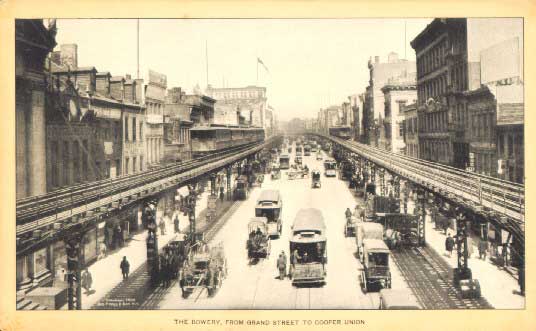
I’d watch the shadows flow across the ceiling for hours, slow, heavy shapes moving up and down the walls and around the room. Waves of heat thickened the steamy air. No one in the city could sleep. I’d sit by my window late into the night. No lights were on in my apartment, but outside street lamps and headlights and storefronts burned, casting dull halos over people who wandered by. Across the street was a flophouse, the kind the Bowery made famous, the kind you could smell from a block away. The building was tall and narrow, six walk-up flights, each floor a warren of small rooms, home to dozens of nameless men.
I can’t tell you what it meant to me, or why I took comfort from watching the men who lived in the rooming house. I suppose something deep inside me felt connected to these men, to the malaise of the summer heat and our slow, humid lives. No matter how late I stayed up and sat by my window, there were always men awake across the way, moving about from the bed to a chair or to pick up a towel. Sometimes a man would walk out of his room and I’d see him—it would startle me—in another man’s room, down the hall, or even on another floor. I had nothing to sit on that was close enough to the window to see out into the night. There was only my old radiator, gritty with street soot, but I’d lean half across it, half on the sill, and later the stiffness would set in, and I’d shift my body. It was my habit, on hot August nights, to leave the bathtub filled. I’d slip into the water like some heavy sea creature, every hour or so, and then anointed, return to my reverie. Yes, it was like a dream. Or maybe my life was like a dream in those years, and I did not draw the line.
I could not see well enough into the rooms across the street to discern the faces of the men, not even well enough to say for sure I would recognize them if I saw them on the corner. I became interested, though, in one man. I’d seen him around in the daytime, and once at a jazz club on the next block. In fact, because I’d seen him there, I imagined he was a musician of some sort, though I’d not heard him play. He carried a small case with him, I suppose it could have held a silver flute or a brass cornet. The man dressed in an exotic fashion. He wore a Turkish-style headdress, or perhaps it was African. For a shirt, he wore a thin flowing tunic that made me think of India, and he wore loose trousers. In the summer, he dressed completely in white, an immaculate ensemble, and he wore white shoes. In the cold weather, and it must have been winter when I saw him in the bar, when the saxophone player nodded to him, he dressed all in black. It was a summer night when I learned he was my neighbor. I had noticed him walking down the street, but then he disappeared into the entryway of the flophouse. The stairwell had a window on each landing, so I watched the white turban float up, passing by four windows, until he appeared in a room halfway across the front of the building. The light came on and I saw him sit on the edge of his bed. His room was plain, as were all of them, but there was no towel carelessly draped on the chair, only a bare table, and a closet where he hung his white robe. Sometimes I would see him reading a book at night, and then later see that his light was out. The other men in the building on the Bowery shifted restlessly in their rooms, from bed to chair, in the door and out the door, eating, drinking, and smoking, the lights left on until dawn. I’d finally drift away from the window to a fitful sleep, worn down by the damp and relentless heat. The long shadows would pace across the ceiling, and the low rumble of the trucks heading for Jersey moaned all night long.
Susan T. Landry lives in a small town in Massachusetts and, at times, yearns for the years when she lived in New York City. She is a medical writer by trade, and grows tomatoes of many colors in the summertime.
